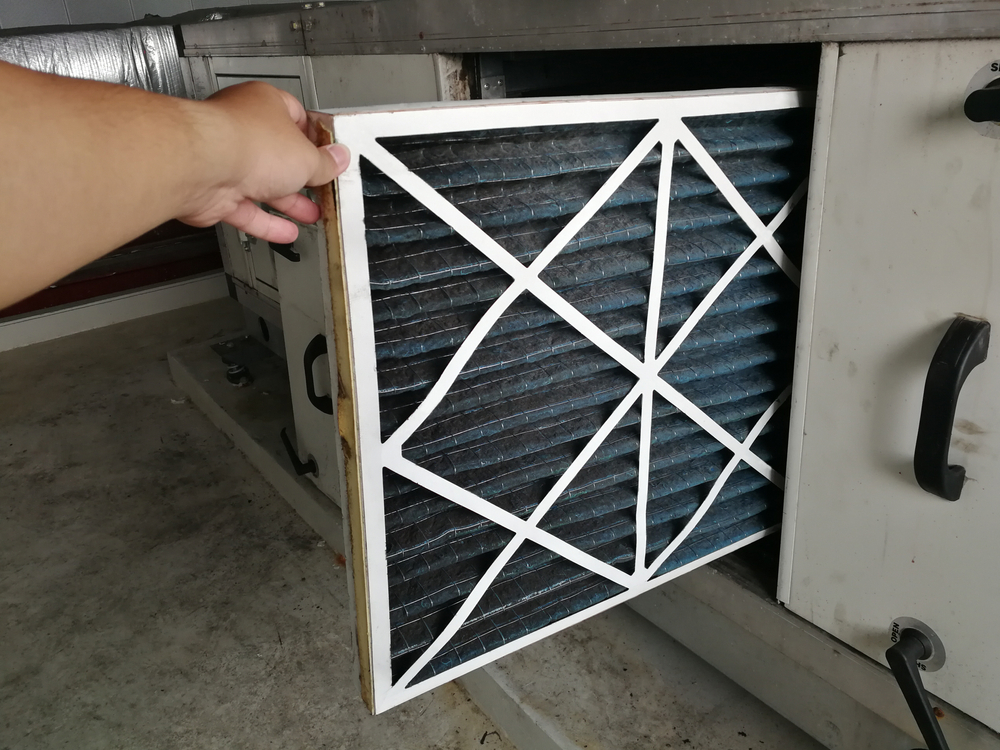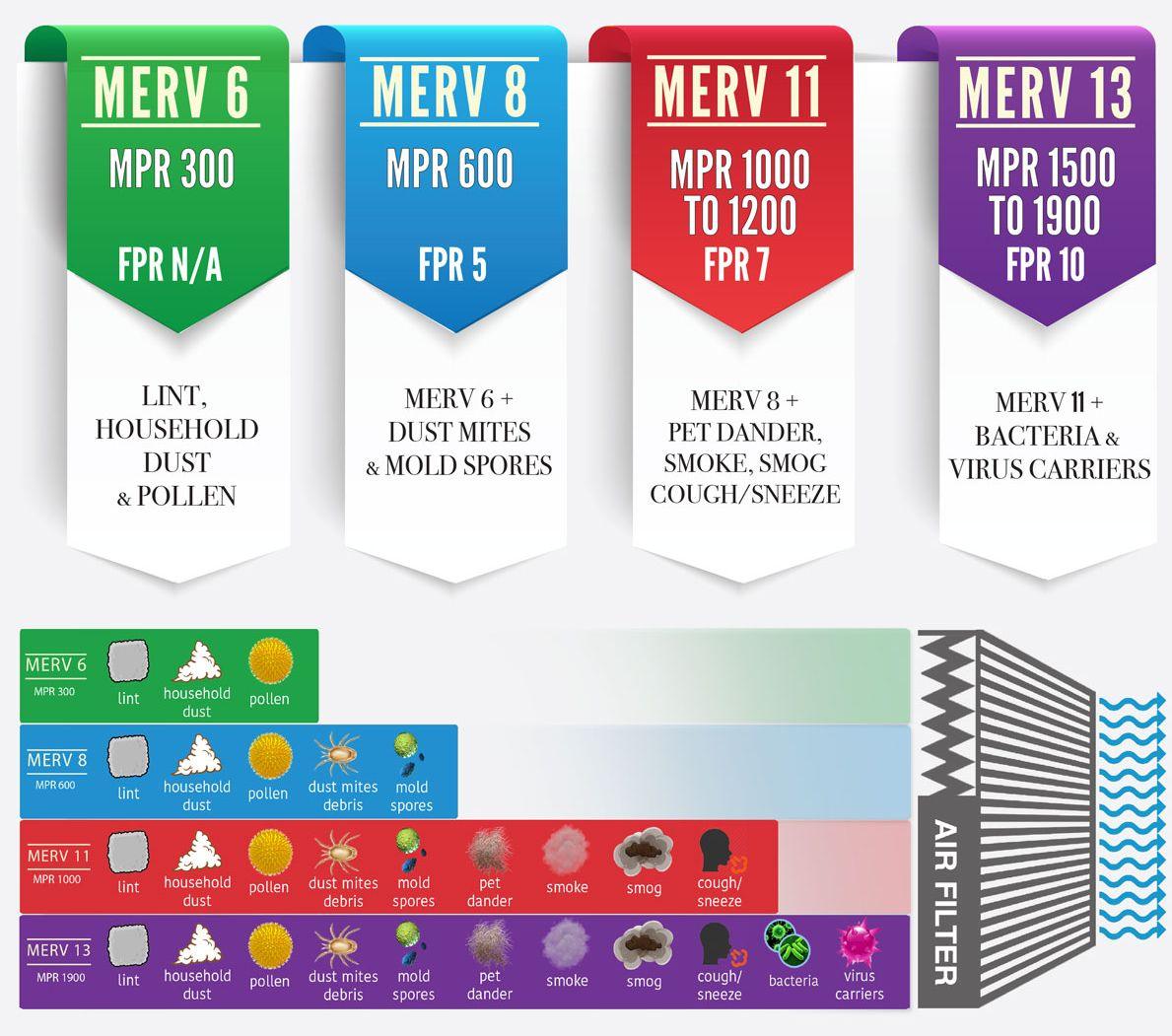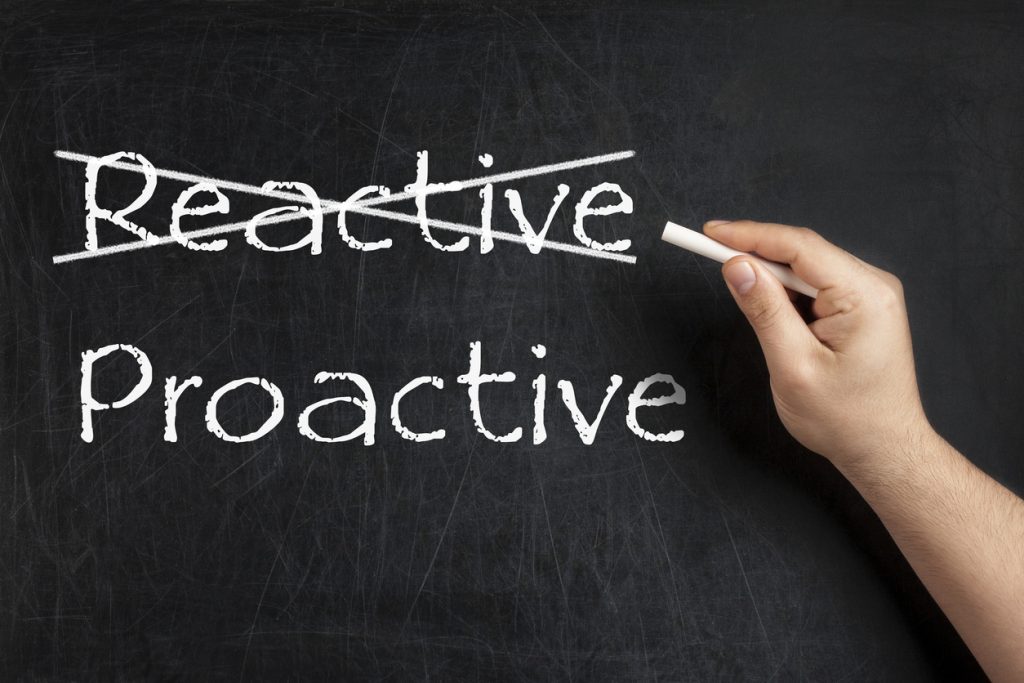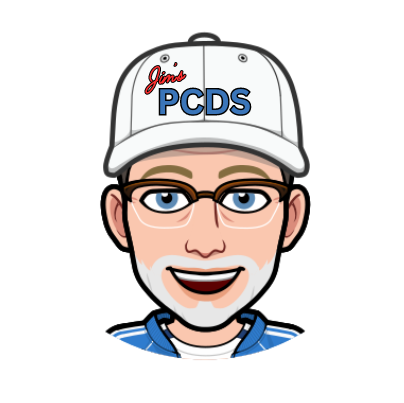HVAC Filters

How To Choose an HVAC Filter
You may think that a filter with a higher filtering capacity is the way to go. HVAC filters are rated using the “MERV” or “Minimum Efficiency Reporting Value” system. The higher the MERV value, the smaller the particals can be filtered. You should be aware that using high MERV filters can negatively impact HVAC systems and indoor air quality if not applied correctly. They can even cost you money.
Here are the key potential issues:
1. Reduced Airflow
-
- Problem: Filters with MERV ratings of 13 or higher are very dense and may restrict airflow.
- Impact: The HVAC system has to work harder to pull air through, leading to reduced efficiency and higher energy consumption.
- Result: This strain can shorten the lifespan of the blower motor and other components.
2. Overloading the HVAC System
-
- Problem: If the system isn’t designed to handle high MERV filters, it could become overworked.
- Impact: This increases the likelihood of breakdowns and may result in costly repairs.
3. Higher Energy Costs
-
- Problem: Restricted airflow forces the system to run longer to maintain the desired temperature.
- Impact: This leads to higher energy bills over time.
4. Uneven Cooling or Heating
-
- Problem: Reduced airflow may prevent rooms furthest from the HVAC unit from being adequately cooled or heated.
- Impact: Some areas may feel warmer or cooler than others, making it difficult to maintain consistent comfort.
5. Increased Filter Maintenance
-
- Problem: High MERV filters trap more particles, meaning they need to be replaced more frequently.
- Impact: If not replaced on time, they can become clogged, further reducing airflow and efficiency.
6. Inappropriate Air Quality Needs
-
- Problem: Higher MERV ratings (14–20) are typically intended for hospitals or cleanrooms, not homes or typical offices.
- Impact: Using an excessively high MERV filter inappropriately may waste money without providing meaningful air quality benefits.

Filter Rating Systems
MERV
The MERV scale ranges from 1 to 20, with higher numbers indicating better filtration. The American Society of Heating, Refrigerating, and Air Conditioning Engineers (ASHRAE) recommends a MERV 6 or higher. MERV 5 to 13 filters are typically used in residential areas. MERV 11 or 12 filters are considered hyperallergenic and can catch pet dander, smoke, and smog. MERV 13 and above filters are considered hospital grade and can catch bacteria and viruses.
FPR
The FPR scale ranges from 4 to 10, with higher numbers indicating better filtration. The Home Depot developed the FPR rating system and uses it for HVAC air filters sold in its stores. FPR 4 filters are considered “good” and FPR 10 filters are considered “premium”.
MPR
The MPR rating system is another way to measure an air filter’s ability to capture contaminants.

Prevent Problems
Here’s four steps that I recommend you take when it comes to HVAC filters:
- Check HVAC Compatibility: Ensure your system can handle higher MERV ratings without issues.
- Consider a MERV 8 to 13 Filter: This range offers a good balance of filtration and airflow for residential use. Personally, I like MERV 11 filters.
- Regular Filter Changes: Monitor and replace filters more frequently to prevent clogs. A lot of service calls are remedied with a simple filter change.
Choosing the right MERV filter is about finding a balance between filtration efficiency and airflow to avoid unnecessary damage to your HVAC system.
TIP: When you change your HVAC filter write the date on it. That way, you’ll always know the last time you changed it.
Recommended Filters
Shop some of my favorite tools: Jim’s Tool Box
Links on this page may be affiliate links. We may earn a small commission when readers click a link and make a purchase.














